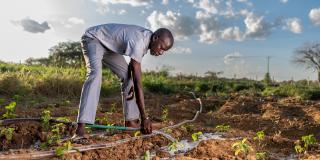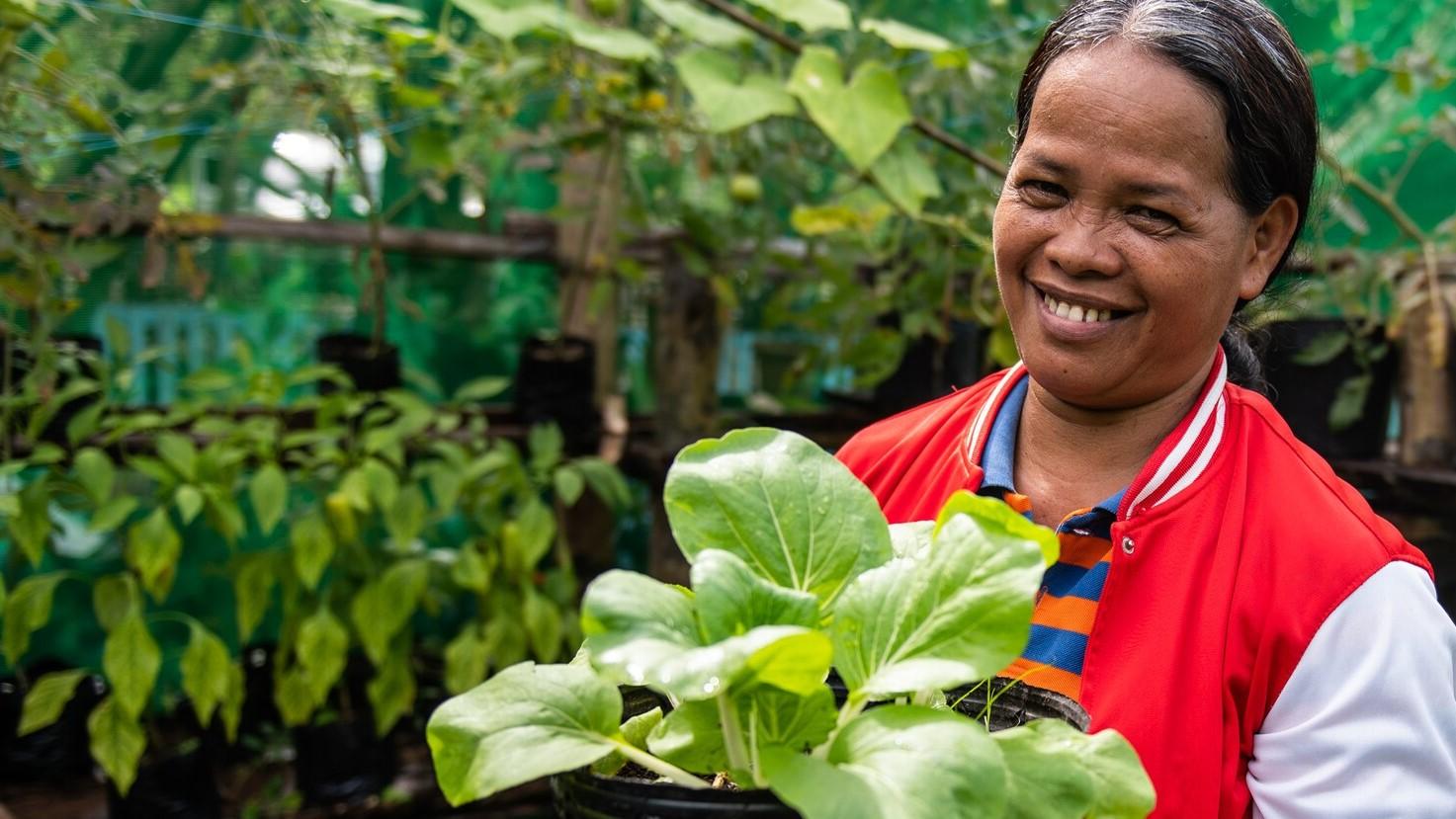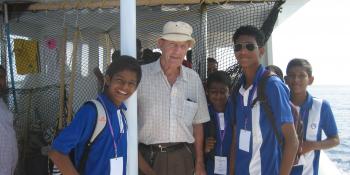
In many other countries, we often think of "work" as sitting behind a computer in large (or small) corporations. Ironically, we are so disconnected from the 84% of agricultural workers worldwide who live as smallholder farmers on less than two hectares of land to meet their families' daily needs.
Smallholder farming is a type of agriculture where farmers focus on growing enough food to feed themselves and their families, with little or no surplus for trade. Most of these farmers aren't using computers or tech in their jobs. Instead, they rely on traditional methods passed down through generations or VSO and partners.
Recently, VSO conducted its first-ever Cross-Country Learning and Partners’ Exchange, which brought together partners and farmers in Zimbabwe working in agroecology - an approach to smallholder farming that emphasises sustainable ecological practices. The farmers in this sector display many important qualities: they are ambitious, dedicated, and focused on progress. Most strikingly, they often display incredible dignity for the work they do.
Among these remarkable individuals was Nethi Dube, a 61-year-old farmer whose life has been transformed through agroecology. Working at the Shashe Agroecological School, a ZIMSOFF and VSO partner organisation, her story exemplifies how this approach to farming can uplift communities and promote a sustainable future.
A new beginning with agroecology
“My name is Nethi Dube, and I am 61 years old. A few years ago, I started learning about agroecology at the Shashe Agroecological School. Before that, my family and I had many problems with farming. We couldn't always get enough food, and it was hard to afford manufactured supplies. We also had to pay for cattle to plough our fields, which cost us a lot of money. But everything changed when I learned about agroecology.
Since I began agroecological farming, my family and I now eat healthy and nutritious food," Nethi proudly shares. "Our meals don't depend on what we find in the market anymore. Now, we eat the different crops we grow on our farm."
Nethi and her family now have access to a diverse range of crops, including traditional grains, vegetables, and fruits. This diversity not only ensures balanced nutrition but also reduces dependency on market-purchased food, which can be costly and less nutritious. The health benefits of this dietary shift are significant, which has led to improved well-being and vitality among her family members.
Financial independence and sustainability
One of the most remarkable aspects of agroecology is its ability to reduce costs and promote self-sufficiency. Nethi explains, "One of the best things about agroecology is that we don't have to spend money on seeds, fertilizers, or cattle for ploughing anymore. We learned to use natural ways like digging and using manure."
These practices not only cut costs but also enhance soil health and crop yield. By using organic manure and practicing crop rotation, Nethi has managed to improve her farm's productivity, leading to a surplus of produce. This surplus has opened new opportunities for income generation.
"Agroecology has taught me many useful skills. Now I can make money from farming, which I couldn’t do before," says Nethi. She now sells excess produce (all organic!) at local markets, contributing to her family's income and financial stability.
"Before learning agroecology, I didn't have the knowledge and skills to maximize my farm's potential," Nethi admits. "Now I have the education and resources to thrive."
Nethi’s message to you
Nethi's success story is a reminder of the impact that sustainable practices can have on individual lives and communities. She encourages others to embrace agroecology, emphasising its benefits for both financial stability and health.
"I encourage others to join agroecology because it helps you earn money and stay healthy," Nethi says. "It's more than just farming; it's about making a better future for us and our children."
Partner with VSO
Get in touch to learn how you support our projects supporting youth, women, and marginalised people across the globe.

Support us with a donation
Read more

Transforming lives through education: Geoffrey’s VSO legacy
With a deep belief in the transformative power of education, Geoffrey from Norfolk, UK, has devoted his life both in the UK and abroad to making education more accessible for all.
